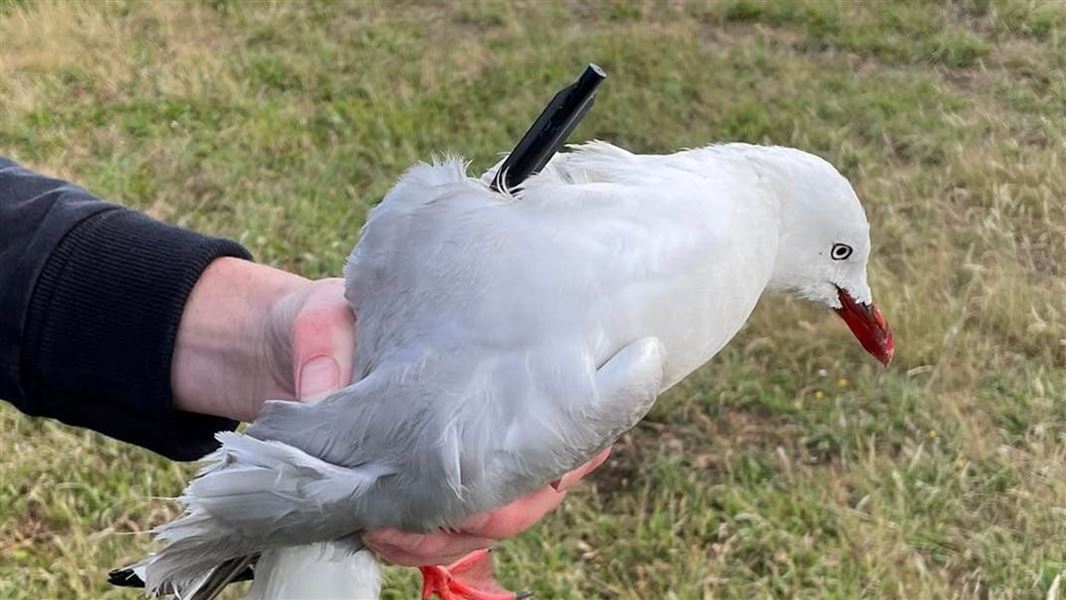Archived content: This media release was accurate on the date of publication.
Date: 28 January 2022
Staff from the Ōamaru Blue Penguin Colony spotted the bird with a short bolt lodged behind its wing in Ōamaru Harbour near Sumpter Wharf on Friday morning.
They were able to catch the gull, which was unable to fly, and take it to a local veterinary clinic.
The bolt was removed, and the bird was transported to the Dunedin Wildlife Hospital on Friday afternoon for specialist assessment and rehabilitation. The bird appears to be recovering well.
Red-billed gulls are a protected species under the Wildlife Act, and the maximum penalty for the disturbance of protected species is a fine of $100,000 and/or imprisonment for two years.
It’s the second incident of red-billed gulls being shot in recent weeks – two gulls were found with blowdarts stuck in them in Waikanae in the last fortnight.
Department of Conservation (DOC) Technical Advisor ecology Bruce McKinlay says it is appalling that someone has shot the gull and DOC is taking the incident very seriously.
“If you have any information about this incident, we are asking you to come forward and share what you know with us.
“Though red-billed gulls may seem common, they have a threat classification of Nationally Vulnerable and their numbers are decreasing.
“We want to remind people that our protected and threatened species should not be used for target practice.”
Ōamaru Blue Penguin Colony science and environmental manager Philippa Agnew says it’s unacceptable that the gull has been treated like this, and to do that to a living animal was incredibly cruel.
If you see anyone harming or interfering with wildlife, or who has information on this incident, please contact 0800 DOC HOT (0800 362 468) or wildlifecrime@doc.govt.nz.
Background
Red-billed gulls nest in dense, noisy colonies around New Zealand’s coast. On wet grass, or at the water's edge, they are often seen 'dancing' on the spot, paddling the ground to draw worms and other invertebrates to the surface to be eaten.
Using the New Zealand Threat Classification System, each native species is assessed every few years against criteria such as how many of it are left, is it increasing or decreasing in number, over what area can it be found, and are any changes due to natural processes or the impacts of people.
Although red-billed gulls are reasonably numerous, their numbers are decreasing at an alarming rate and so they are considered to be 'Nationally Vulnerable'.
Three species of kiwi (Fiordland tokoeka, great spotted and North Island brown) are in the same category, because although their numbers are lower, they are not declining as quickly.
Red-billed gulls are faithful to their partner and nest site; successful pairs tend to stay together and nest in the same place year after year.
Contact
For media enquiries contact:
Email: media@doc.govt.nz
